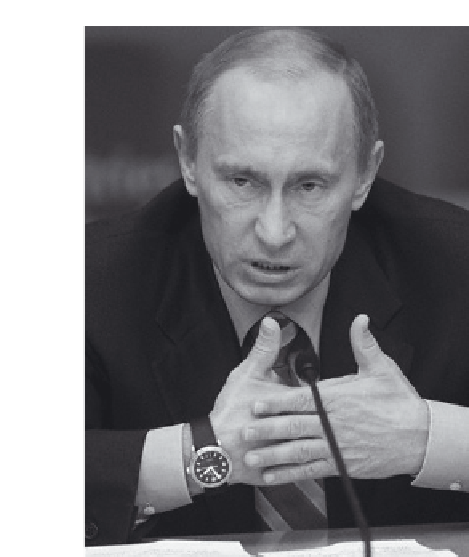Environmental Engineering Reference
In-Depth Information
ernments to increase
their share of the oil
revenue, regardless of
contractual niceties.
Two recent cases of
resource nationalism
are Venezuela and
Russia, both countries
whose current leaders
feel that their prede-
cessors gave away too
much to foreign oil
interests in the 1990s.
In 2006 Venezuela's
President Hugo
Chavez announced
that he was effectively
nationalizing all oil
fields by raising the
state company PdVsa's
stake in all operations
from forty to sixty
percent. The fact that
the left-wing president
made this move seven
years after coming to power might reflect a certain initial caution, or
more probably that after a steady run-up in the oil price over that period,
he could no longer resist the financial temptation to get a bigger slice of
rising oil revenues.
The move was accepted by most foreign companies (in return for com-
pensation). But ExxonMobil, with characteristically robust insistence on
contract observance, refused to countenance it, leading to the seizure of
its assets by the Chavez government. To put pressure on Venezuela for
compensation, ExxonMobil has tried to get courts in the US and Europe
to freeze PdVsa's foreign assets. Chavez has threatened to cut off all oil
shipments to the US should that happen.
In Russia, Vladimir Putin has made it his business, first as president
(2000-08) and then as prime minister (since 2008), to restore some state
control over an oil sector that had been divided up and privatized in the
1990s (in sharp contrast to a gas industry that was kept intact and handed
Russian Prime Minister Vladimir Putin at the
opening ceremony of the Gas Exporting Countries
Forum (GECF) in Moscow, December 2008.































































